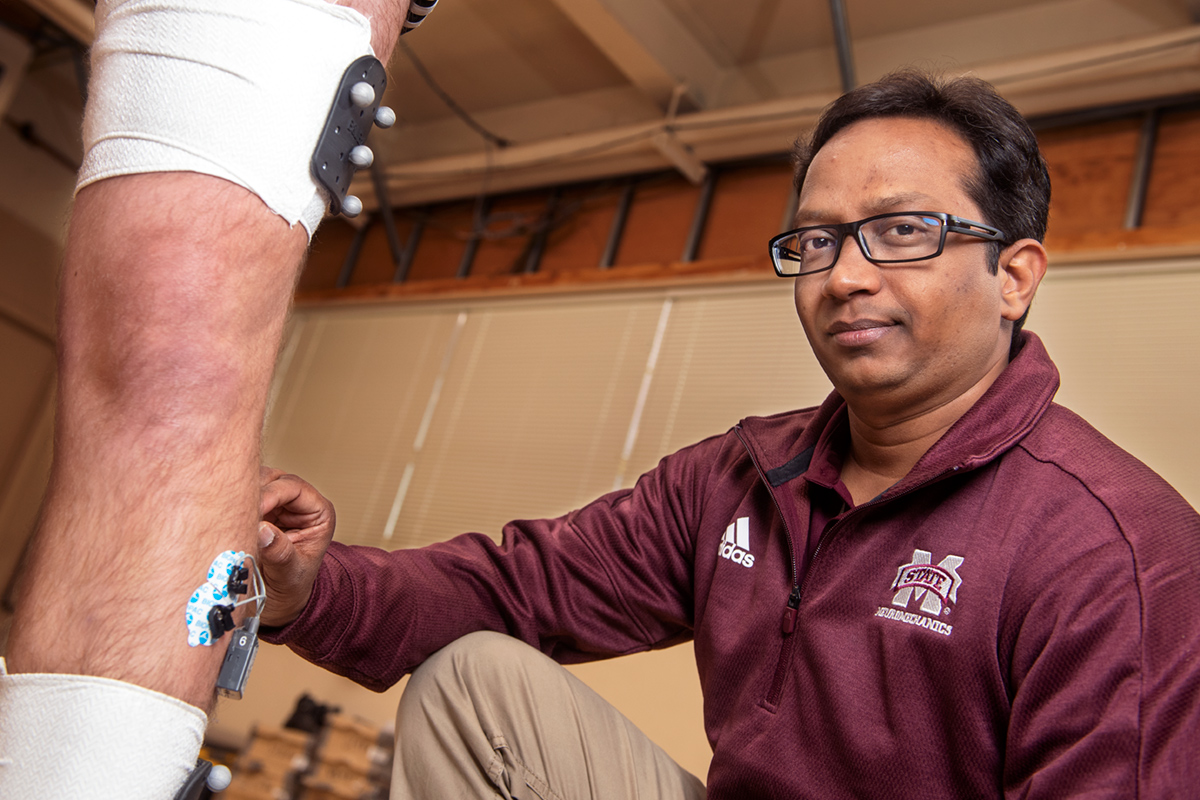
If you ask Assistant Professor Harish Chander what he is most proud of professionally, he immediately explains what research—and its practical application—means to him.
“Research isn’t just about the publication of academic papers or chapters in a book; it’s about constantly improving knowledge and building upon what you learn every day,” Chander said. “That’s what we are doing at the neuromechanics lab in the Department of Kinesiology.”
A native of India, Chander went to physical therapy school, but after practicing for a few years, he decided to make a change. This led him to a master’s degree and then a doctoral program at the University of Mississippi.
“Very quickly, I realized that while I enjoyed practicing physical therapy, my heart really lies with research. In research, not only can I use my knowledge of physical therapy, but I also can continue to develop and discover new things that would help improve the lives of firefighters, military personnel, and assembly line workers,” Chander said.
Transitioning to Starkville was natural for him and his wife, Jay. They had grown to love college towns, and Starkville was the perfect size. Since joining Mississippi State’s faculty in 2014, Chander has helped launch and lead the kinesiology department’s neuromechanics lab.
In addition to his academic credentials, Chander is a member of the American Society of Biomechanics, Gait and Clinical Movement Analysis Society, International Council of Motor Sports, South-East American College of Sports Medicine, and an American Red Cross certified CPR/AED instructor. His research has been funded the National Institute of Occupational Safety and Health, National Science Foundation, the NSF I-Corps program and he has received industry research support from PACCAR Engine Company.
Now co-director of the neuromechanics lab, Chander’s research centers on the application of principles of biomechanics and neuromechanics of human performance and injury prevention, especially in the analysis of the human postural control system, researching postural stability, gait, slips/trips/falls, muscular and cognitive fatigue, as well as occupational safety and athletic footwear design. His projects aim to create safer and more efficient work environments for those who have physically strenuous jobs.
“When I first came here, the department was in the process of converting a classroom into what is now the neuromechanics lab. I got to help create the lab, and now that it has been running for four years, my dream is to make it increasingly more competitive,” Chander said. “I want other professionals to visit Mississippi State to see how we do things, and we are well on our way to achieving that.”
Click here to view more "Research Spotlights" in the College of Education.